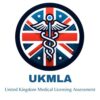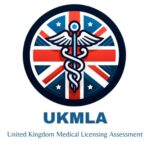Introduction: The field of medicine is not only about acquiring knowledge and skills but also about meeting rigorous standards of competency and professionalism. For medical graduates aspiring to practice in the United Kingdom, the UK Medical Licensing Assessment (UKMLA) stands as a significant milestone. In this comprehensive guide, we delve into what the UKMLA entails, its significance, preparation strategies, and its impact on medical professionals.
Understanding the UKMLA: The UKMLA is a national assessment designed to evaluate the knowledge, skills, and behaviors of medical graduates. It serves as a licensing examination for individuals seeking to practice medicine in the UK. Introduced to ensure consistent standards across medical practice, the UKMLA aims to safeguard patient safety and maintain the quality of healthcare services.

Components of the UKMLA: The UKMLA consists of two main components:
- UKMLA Part 1: This section assesses candidates’ applied clinical knowledge and decision-making skills. It typically comprises multiple-choice questions (MCQs) and may include other formats such as extended matching questions (EMQs) or single-best answer questions (SBAs). The topics covered span the breadth of medical sciences, clinical reasoning, and professional behaviors.
- UKMLA Part 2: Part 2 focuses on assessing candidates’ clinical and communication skills through objective structured clinical examinations (OSCEs). These stations simulate real-life clinical scenarios where candidates interact with standardized patients to demonstrate their ability to gather information, communicate effectively, and perform clinical tasks competently.
Preparation Strategies: Preparing for the UKMLA requires a structured and comprehensive approach. Here are some strategies to consider:
- Familiarize Yourself with the Exam Format: Understanding the format and structure of both Part 1 and Part 2 is crucial. Review past papers, sample questions, and official guidelines to gain insights into the types of questions and scenarios you may encounter.
- Develop Strong Foundations: Focus on building a solid foundation in basic medical sciences, clinical knowledge, and communication skills throughout your medical education. Consolidate your learning through regular revision and practice.
- Utilize Resources: Make use of reputable study resources, including textbooks, online question banks, and educational courses tailored to the UKMLA. Collaborate with peers and mentors to exchange knowledge and study tips.
- Practice Under Exam Conditions: Simulate exam conditions by timing yourself during practice sessions and completing mock exams. This helps improve your time management skills and familiarizes you with the pressure of the exam environment.
- Enhance Clinical Skills: Dedicate time to honing your clinical skills through hands-on experience, clinical attachments, and role-playing exercises. Practice history-taking, physical examination techniques, and patient communication to ensure proficiency during OSCEs.
The Impact of the UKMLA: Successfully passing the UKMLA is a significant achievement for medical graduates, paving the way for professional licensure and entry into the UK healthcare system. Beyond its role as a licensing examination, the UKMLA reinforces the importance of continuous learning, professionalism, and patient-centered care among healthcare professionals.
Conclusion: The UKMLA represents a critical milestone in the journey of medical graduates aspiring to practice medicine in the United Kingdom. By understanding its components, preparing diligently, and demonstrating competency, candidates can embark on fulfilling careers dedicated to improving patient outcomes and advancing healthcare delivery. Aspiring doctors should approach the UKMLA with diligence, determination, and a commitment to lifelong learning, knowing that success in this assessment opens doors to a rewarding and impactful profession.


